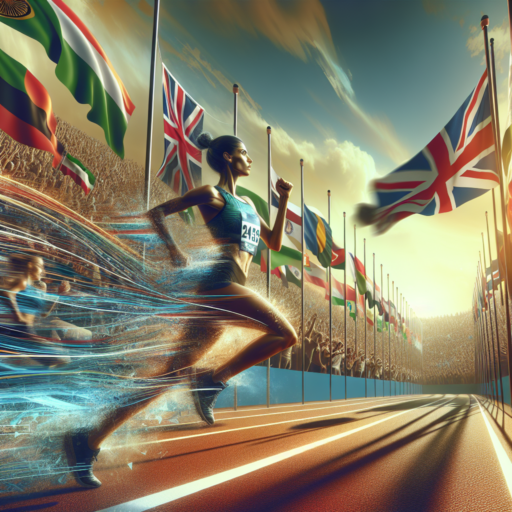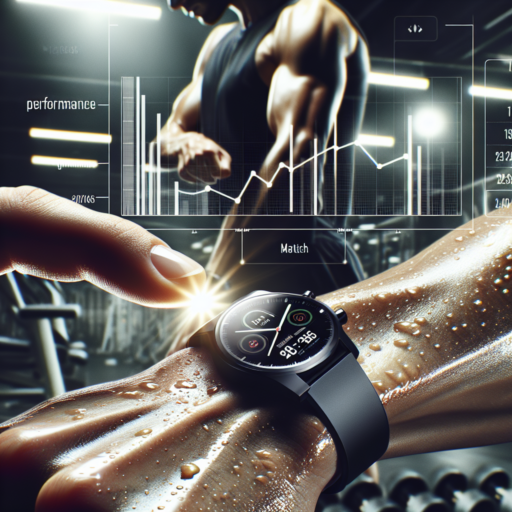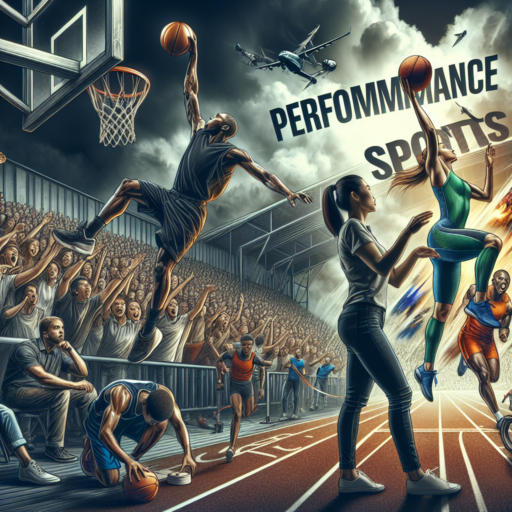No se han encontrado productos.
Introduction to the World’s Fastest Marathon Runners
Exploring the feats of the world’s fastest marathon runners is akin to witnessing human endurance and speed pushing the boundaries of what’s possible. This elite group has not only shattered records but has also set new benchmarks that inspire both athletes and enthusiasts alike. Their journeys from dedicated training to crossing the finish line in record times encapsulate the spirit of athleticism at its peak.
The world of marathon running is adorned with legendary figures whose names are etched in history for their incredible speed and stamina. These runners have taken the 26.2-mile challenge and turned it into a spectacle of human achievement. Among them, athletes from Kenya and Ethiopia often dominate the field, known for their endurance, speed, and astounding ability to maintain a pace that sets them apart from the rest.
Highlighting Record Breakers
- Eliud Kipchoge of Kenya, often regarded as the greatest marathoner of the modern era, holds the men’s world record for the fastest marathon time.
- Brigid Kosgei, also from Kenya, shattered the women’s world record, proving that incredible talent and hard work can lead to groundbreaking achievements.
Understanding the physical and mental preparation that goes into becoming the fastest in the world is crucial for appreciating these athletes’ accomplishments. Their training regimes, diet, and the psychological resilience required to compete at this level highlight the dedication needed to excel in marathon running.
The Current World Record for the Fastest Marathon
The quest for the title of fastest marathon runner has captured the attention of athletes and spectators around the globe. The marathon, a grueling 26.2-mile (42.195 kilometers) race, has a long history of inspiring feats of human endurance and speed. The current world record for the fastest marathon stands as a testament to what is possible when peak physical conditioning meets unparalleled determination.
This prestigious record was shattered in a race that echoed around the running world, drawing attention from international media and running enthusiasts alike. The achievement not only set a new benchmark in marathon running but also served as an inspiration for aspiring marathoners worldwide. The significance of this record is profound, influencing training methodologies, race strategies, and even the technology behind running gear and footwear.
Impact on the Running Community
The ripple effects of setting a new world record in marathon running are far-reaching. It reshapes the goals of runners, from novices to seasoned athletes, pushing them to reevaluate their own limits and capabilities. This new benchmark has sparked increased interest in marathon running, with more people taking to the roads and trails, motivated by the possibility of pushing their own boundaries. Additionally, it has led to advancements in running science, from nutritional strategies to biomechanical analyses, as athletes and coaches seek to replicate and understand the factors contributing to such a remarkable achievement.
Training Secrets of the World’s Fastest Marathon Runners
Unlocking the training secrets of the world’s fastest marathon runners unveils a blend of rigorous discipline, advanced strategies, and mental resilience. These athletes dedicate substantial portions of their lives to mastering the balance between endurance and speed, focusing intently on strategies that allow them to push the boundaries of human performance.
Optimized Training Regimens
Elite marathon runners follow highly optimized training programs that are meticulously crafted to increase stamina, enhance speed, and prevent injuries. These regimes often include a mix of long-distance runs, speed work, strength training, and recovery periods. Understanding the importance of recovery, they implement advanced techniques such as physiotherapy, massage, and nutrition-based recovery aids to ensure they can train consistently without overtraining or injury.
Mental Fortitude and Strategy
Another vital component of their success lies in their mental fortitude and strategic approach to racing. Marathon running is as much a mental challenge as it is a physical one. Top performers focus on building a strong mental edge through visualization, goal setting, and psychological resilience training. They are adept at pacing themselves, knowing when to conserve energy and when to make their move, demonstrating an acute awareness of their body’s cues and competitive dynamics.
The Role of Nutrition in Achieving Top Marathon Speeds
The quest for top marathon speeds is a multifaceted endeavor, with nutrition playing a pivotal role in an athlete’s performance and endurance. Understanding how various nutrients impact energy levels, recovery time, and overall health is crucial for marathon runners aiming to achieve their peak velocities.
Optimizing Carbohydrate Intake for Enhanced Energy
Carbohydrates are the primary energy source for marathon runners. Utilizing a strategic approach to carbohydrate loading can significantly affect an athlete’s marathon time. This involves increasing carbohydrate intake in the days leading up to a marathon to maximize glycogen stores in the muscles and liver, providing ample energy throughout the race. Studies suggest that a carbohydrate-rich diet can improve endurance and delay the onset of fatigue, directly influencing marathon performance.
Importance of Hydration in Maintaining Peak Performance
Hydration plays a less visible but equally vital role in achieving top marathon speeds. Proper fluid intake before, during, and after a marathon is essential for maintaining balance in body functions. Dehydration can lead to a significant decrease in performance, as it affects cardiovascular efficiency and increases the perception of effort. Marathon runners are advised to personalize their hydration strategies, taking into account their sweat rate and the climate conditions of the race to prevent both dehydration and hyponatremia (low blood sodium levels).
The Role of Protein in Recovery and Strength Building
While carbohydrates are key for energy, proteins are essential for recovery and muscle strength. Incorporating a balanced amount of protein into an athlete’s diet not only facilitates muscle repair after long training sessions but also helps in building muscle endurance. Adequate protein intake is critical for marathon runners to maintain muscle mass and strength, which are essential for achieving and sustaining top speeds. Focusing on a diet that includes lean protein sources can significantly enhance overall marathon performance.
Technology and Gear Used by Elite Marathon Runners
The world of marathon running is not just about the relentless physical training and mental preparation; it’s equally about the sophisticated technology and gear that elite athletes use to get an edge over their competition. Today’s marathon runners have access to an array of high-tech equipment and clothing, designed specifically to improve performance, enhance endurance, and reduce injury risk.
High-Performance Wearables
At the forefront of marathon technology are the wearables. These devices, ranging from advanced GPS watches to heart rate monitors, offer runners detailed insights into their training sessions and races. They track pace, distance, elevation, heart rate, and even running form, allowing athletes to fine-tune their performance with precision. The most cutting-edge models feature real-time coaching and can predict race times based on training data, providing an indispensable tool for any elite runner.
State-of-the-Art Footwear
Another critical component in the arsenal of elite marathon runners is their footwear. The latest innovations in running shoes include energy-returning midsoles, carbon fiber plates, and tailor-fit knitted uppers. These technologies work together to reduce muscle fatigue, improve efficiency, and enhance running economy, thus enabling runners to maintain their best form throughout the marathon. Significantly, the rules regulating these high-tech shoes have evolved, ensuring a balance between technological advancement and fair competition.
Comparison: Top 5 Fastest Marathon Runners of All Time
The realm of marathon running is graced with extraordinary athletes whose performances have pushed the boundaries of human potential. Among these, the top 5 fastest marathon runners stand out for their remarkable achievements. Each runner has etched their name into the annals of history, inspiring countless others to pursue the limits of their endurance and speed.
The Elite Marathoners
These distinguished athletes have not only shown an exceptional level of stamina but have also demonstrated strategic prowess and mental tenacity. Their records are a testament to their hard work, disciplined training regimes, and the unyielding desire to surpass their limits. The competition among the top marathoners is fierce, with each athlete continuously striving to shave seconds off their record times in the pursuit of marathon supremacy.
The impact of these top 5 fastest marathon runners extends beyond the race course. They have redefined what is considered possible in marathon running, setting new benchmarks for future generations. Their journeys from aspiring runners to world record holders provide a source of motivation for both seasoned marathoners and novices alike, proving that with determination and dedication, extraordinary goals can be achieved.
How to Improve Your Marathon Time: Tips from the Pros
Improving your marathon time can feel like an insurmountable challenge, but with targeted tips from professional runners, you can shave off those vital minutes and even seconds. Whether you’re preparing for your first marathon or looking to set a new personal best, incorporating professional strategies can make a significant difference.
Refine Your Training Regimen
One of the most effective ways to improve your marathon time is by refining your training regimen. Tailoring your training to focus on both speed and endurance can help you build the necessary physical and mental toughness. Incorporating interval training, long-distance runs at a steady pace, and tempo runs into your routine are crucial. Don’t forget the importance of a well-structured tapering period to ensure your body is in peak condition on race day.
Optimize Your Nutrition and Hydration
Optimal nutrition and hydration are pivotal for improving marathon performance. Fueling your body with the right balance of carbohydrates, proteins, and fats during the training period, and carb-loading in the days leading up to the race, can provide you with the sustained energy you need. Equally important is a hydration strategy that starts well before the race day, ensuring you stay hydrated throughout the marathon while avoiding hyperhydration.
Master Your Race Day Strategy
Lastly, mastering your race day strategy is essential for improving your marathon time. This includes everything from pacing yourself correctly and knowing when to push harder, to effectively navigating aid stations without losing precious seconds. Listening to your body and being adaptable can also make a significant difference in your overall performance.
The Psychology Behind Winning Marathons
Understanding the mental fortitude required to win marathons transcends the boundaries of physical endurance and taps into the deep reserves of psychological stamina. At the core of marathon success lies a mental toughness that is as imperative as the miles logged during training. It’s not just about how fast one can run, but how resiliently one can push through the inevitable barriers that come with such a grueling distance.
Mental Strategies of Elite Marathoners
The psychology of winning marathons involves a cocktail of mental strategies that elite athletes employ to stay focused, motivated, and resilient. Visualization techniques, where runners mentally rehearse the race, picturing themselves overcoming obstacles and crossing the finish line, play a crucial role. Equally important is the development of an unshakeable belief in their ability to win, which comes from months, if not years, of consistent training and mental conditioning.
An essential part of the psychological preparation involves dealing with pain and discomfort. Elite marathoners train their minds to acknowledge the pain without allowing it to dominate their thoughts. This mental fortitude is built gradually, teaching the mind to push the body beyond its perceived limits. It’s a skill that, once mastered, can be the defining factor between finishing and winning a marathon.
Future Predictions: Can the Marathon World Record be Broken Again?
The question of whether the marathon world record can be broken again stirs both excitement and skepticism among athletics enthusiasts and experts. Historically, every new record sets a higher bar, testing the limits of human endurance, speed, and strategy. As we look to the future, various factors suggest that not only is it possible to break the current marathon world record, but it is also likely.
Firstly, advancements in training methodologies and nutritional science play a pivotal role in enhancing athletes’ performance. Tailored training programs that incorporate cutting-edge technology and personalized nutrition plans are pushing athletes beyond their known boundaries. Additionally, the evolution of running shoes and gear offers improved efficiency and reduced injury risks, contributing to faster race times.
Another influential factor is the growing pool of talented runners from around the globe. With more individuals having access to high-quality training facilities and coaching, the likelihood of discovering exceptional talent increases. Furthermore, the spirit of competition among elite athletes fuels a continuous drive to excel and break new records. As such, the marathon world record is not just a number but a testament to human capacity and determination to redefine what is possible.
Conclusion: What Makes the World’s Fastest Marathon Runners Stand Out
The essence of what distinguishes the world’s fastest marathon runners can be distilled into a blend of innate talent, rigorous training, and an undying mental fortitude. These athletes stand at the apex of human endurance, not solely through genetic predisposition but also due to their relentless pursuit of excellence. It’s a journey marked by countless hours of training, meticulous nutrition, and the strategic management of energy and pace during the race itself.
Physical conditioning and technical skills form the foundation upon which their success is built. Elite runners display an extraordinary aerobic capacity, efficient running mechanics, and the ability to push their bodies beyond conventional limits. Their training regimens are comprehensive, incorporating long runs, tempo workouts, and speed drills that are designed to enhance both their endurance and speed.
Beyond the physical, the psychological makeup of these marathoners is equally pivotal. Mental toughness enables them to withstand the rigors of training and the intensity of competition. It’s this combination of physical prowess, honed technique, and mental resilience that sets the world’s fastest marathon runners apart. They are not just athletes; they are the embodiment of dedication, discipline, and the unwavering belief in the possibility of transcending boundaries.



